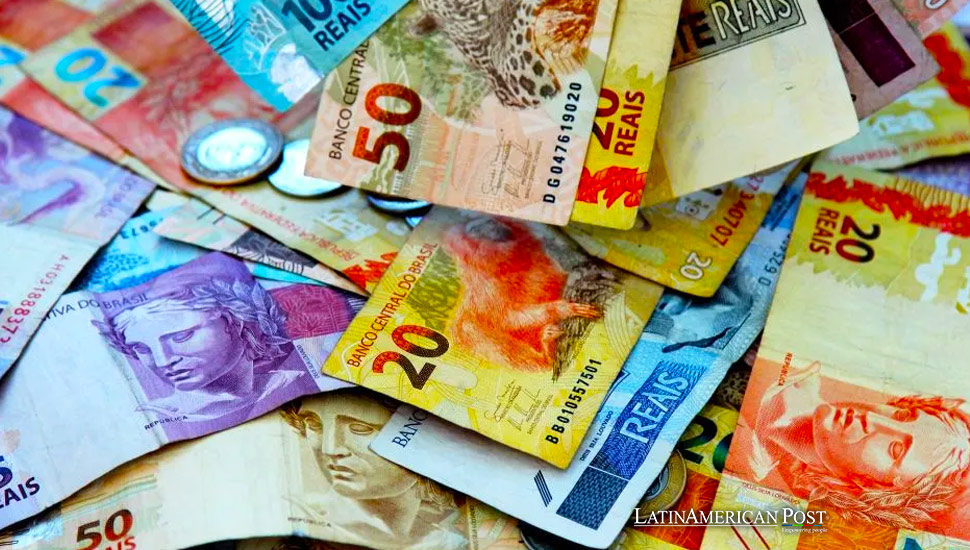Brazilian Real Plunges Amidst Government Communication Woes and Market Noise

The Brazilian Real’s recent depreciation against the US dollar is attributed to government communication issues and market uncertainties. Finance Minister Fernando Haddad highlights these challenges amidst positive economic indicators and seeks improved clarity to stabilize the currency.
The Brazilian Real has experienced a significant depreciation against the US dollar, reaching its lowest value since December 2021. On Monday, the Real fell by 1.05%, closing at 5.64 per dollar. This trend began several months ago and has intensified in recent weeks, prompting concerns and discussions among market analysts and government officials.
Finance Minister Fernando Haddad addressed the media on Monday, attributing the Real’s decline to “many noises” and some “communication problems” within the government. Haddad emphasized the need for more transparent communication about Brazil’s economic achievements, which include a controlled inflation rate of around 3.5% annually and a steady economic growth rate of approximately 2.5%.
“I attribute it to many noises,” Haddad stated, acknowledging the heightened volatility in the currency market. He noted that while Brazil’s economic fundamentals remain strong, the government’s messaging needs improvement to reassure domestic and international investors. The market’s reaction has been partly driven by President Luiz Inácio Lula da Silva’s public criticisms of the Central Bank’s high-interest rate policy.
Lula has been vocal about his desire to reduce interest rates, currently at 10.5%, to stimulate credit and economic activity. However, the Central Bank, an autonomous entity, has resisted these calls, citing fiscal imbalances that could reignite inflationary pressures. This public discord has added to the market’s uncertainty, exacerbating the Real’s depreciation.
Positive Economic Indicators Amidst Currency Volatility
Despite the currency’s depreciation, Haddad pointed out several positive economic indicators that should bolster confidence in Brazil’s financial stability. He mentioned receiving reports on Monday highlighting improvements in economic activity and increased tax revenues. These developments are crucial for the government’s goal of balancing the budget without cutting social spending.
Haddad’s comments reflect an optimistic outlook for Brazil’s economy despite the current turbulence in the foreign exchange market. He believes that with better communication and the dissemination of positive economic data, the government can “accommodate” the current situation and “reverse” the pressures on the currency market.
The Brazilian government’s approach contrasts with that of other Latin American countries facing similar challenges. Governments struggle to maintain economic stability in regions with higher inflation rates, such as Argentina and Venezuela. Brazil’s controlled inflation and steady growth offer a more favorable comparison, highlighting the importance of effective communication in maintaining market confidence.
The situation in Brazil offers valuable insights for other Latin American nations grappling with currency volatility and economic policy challenges. Countries across the region, including Mexico, Colombia, and Chile, face varying degrees of economic instability influenced by internal and external factors. Effective government communication and transparent financial policies are critical in managing these challenges.
In Mexico, for instance, the peso has faced fluctuations due to changes in US monetary policy and domestic economic reforms. Similarly, political shifts and changes in global commodity prices have impacted Colombia’s economy. With its reliance on copper exports, Chile has also experienced currency volatility linked to global market trends.
The Brazilian example underscores the importance of a coordinated approach between government and financial institutions to stabilize the economy. While Brazil’s Central Bank maintains its autonomy in monetary policy, the government’s role in communicating economic strategies and achievements is equally vital. This balance is essential for fostering investor confidence and ensuring sustainable economic growth.
Haddad’s recognition of improved communication signals a potential shift in Brazil’s economic strategy. By highlighting positive economic indicators and addressing market concerns, the government aims to create a more stable environment for the Real. This approach benefits Brazil and sets a precedent for other Latin American countries facing similar economic dynamics.
Balancing Fiscal Policy and Social Spending
One of the critical challenges for the Brazilian government is balancing fiscal policy with the need to maintain social spending. Haddad emphasized that increasing tax revenues would help achieve this balance without resorting to cuts in social programs. This approach is critical for maintaining public support and ensuring that economic policies do not disproportionately impact vulnerable populations.
The government’s focus on attracting foreign investment is another crucial aspect of its economic strategy. Brazil’s vast natural resources and large consumer market make it an attractive destination for international investors. However, the recent currency volatility has raised concerns about the stability of investments in the country.
To address these concerns, Haddad highlighted ongoing efforts to improve the business environment and streamline regulatory processes. The government hopes to attract long-term investments to drive sustainable growth and development by creating a more predictable and transparent economic landscape.
Navigating Economic Challenges with Strategic Communication
In conclusion, the recent depreciation of Brazilian real estate underscores the importance of effective government communication in managing economic challenges. Finance Minister Fernando Haddad’s acknowledgment of “noises” and communication issues reflects a commitment to improving transparency and clarity in monetary policymaking. With positive economic indicators and a focus on balancing fiscal policy, Brazil is poised to navigate its current challenges and stabilize its currency.
Also read: Tribunal brasileño rechaza solicitud de X de eximir de responsabilidad jurídica a filial
The lessons from Brazil’s experience are relevant for Latin America and emerging markets worldwide. Effective communication and sound economic policies are essential for fostering investor confidence and ensuring sustainable growth. As Brazil continues to refine its approach, its strategies will serve as a valuable reference for other countries seeking to manage currency volatility and promote economic stability.





